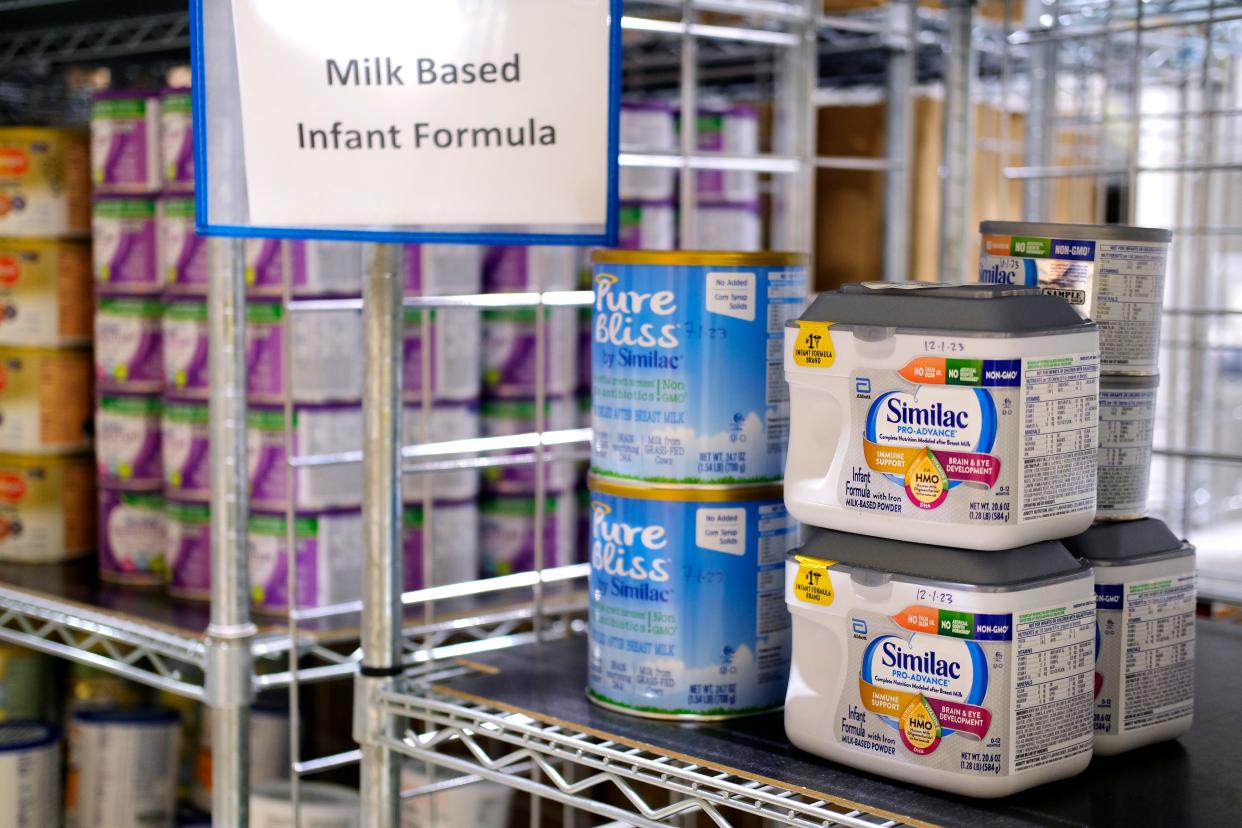Ohio asks for federal help on infant formula shortage for 61K low-income babies

The Ohio Department of Health said Wednesday that it has applied for waivers from the federal government to give low-income mothers more choices when selecting baby formula.
Low-income mothers often rely on the Special Supplemental Nutrition Program for Women, Infants and Children, more commonly known as WIC, to secure money for baby formula and food for their children.
WIC often comes with strict guidelines that say what brand and how much of infant formula a mother can purchase at a time.
Amid a nationwide shortage of infant formula, however, those restrictions are burdensome. In response, President Joe Biden's administration offered states to apply for waivers of those requirements so that larger amounts and different brands can be obtained.
About half of infant formula nationwide is purchased by people using WIC benefits, according to the White House. In 2020, more than 61,000 infants relied on WIC in the state. Ohio's program is the ninth largest in the nation, according to the state health department.
Ohio is one of the last states to apply for the new waivers, according to the United States Department of Agriculture. Nine other states as of Tuesday had not been given the waivers. The slow response has garnered some criticism.
"We know from other states that they offered this waiver process back in February... I don't know why it took so long," said Nan Whaley, the Democratic candidate looking to unseat Republican Gov. Mike DeWine. "I find that questionable where the priorities are in Mike DeWine's government."
Dr. Bruce Vanderhoff, who leads the Ohio Department of Health where the WIC program is housed, said Wednesday that Ohio's program is not contracted with Abbott, which has had product recalls that have worsened the shortage.
Ohio is instead using Mead-Johnson for providing formula to low-income mothers. Vanderhoff said the company has been able to produce and recently significantly increased its production.
Nevertheless, both Vanderhoff and DeWine have said they are looking at ways to combat the shortage, and they are in constant talks with manufacturers and the federal government.
We "are very concerned about this nationwide shortage and doing all we can to help families that may be affected," said Vanderhoff.
Titus Wu is a reporter for the USA TODAY Network Ohio Bureau, which serves the Columbus Dispatch, Cincinnati Enquirer, Akron Beacon Journal and 18 other affiliated news organizations across Ohio.
Get more political analysis by listening to the Ohio Politics Explained podcast
This article originally appeared on The Columbus Dispatch: Baby formula shortage: Ohio moms on WIC may soon have some relief

